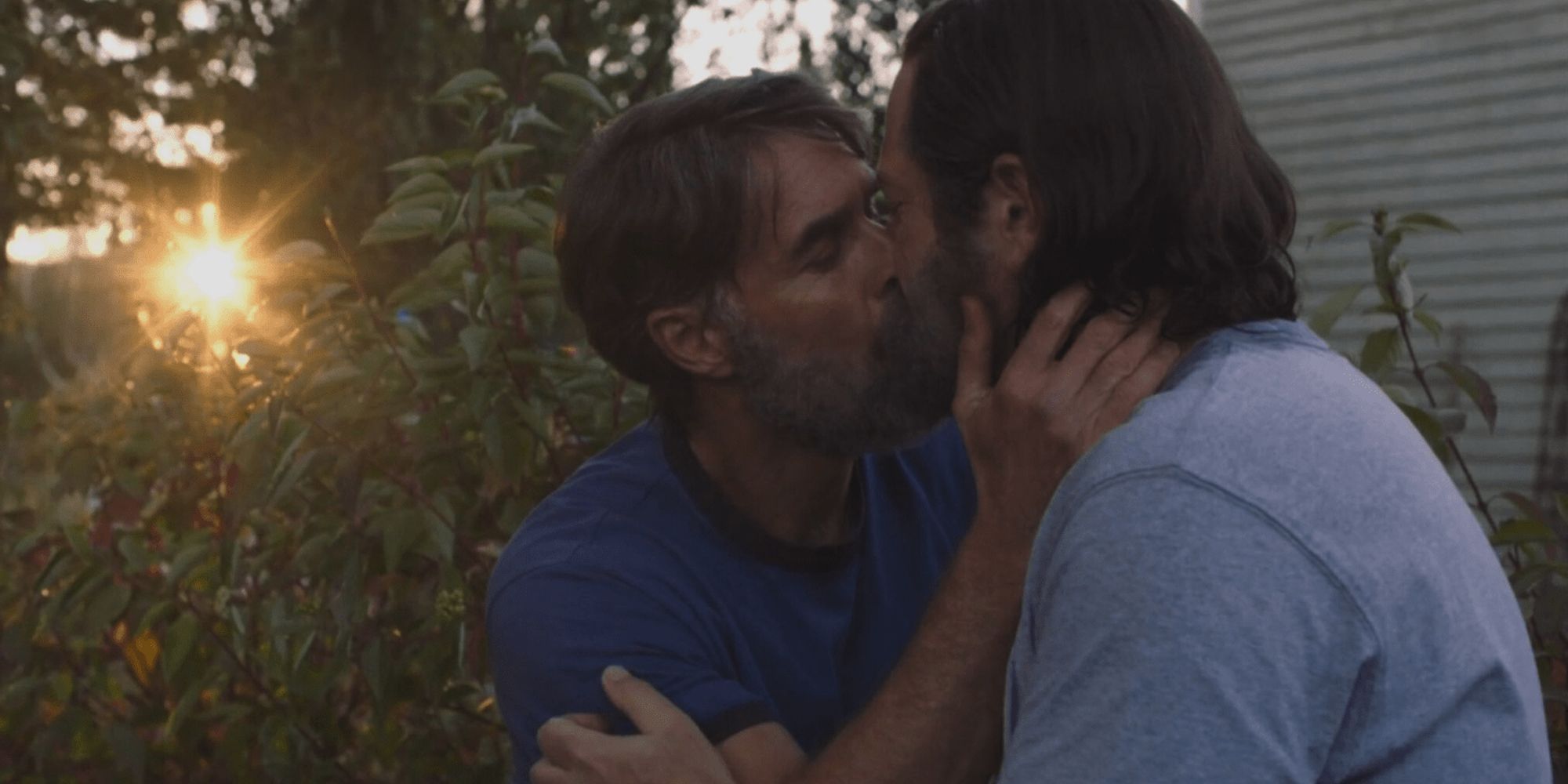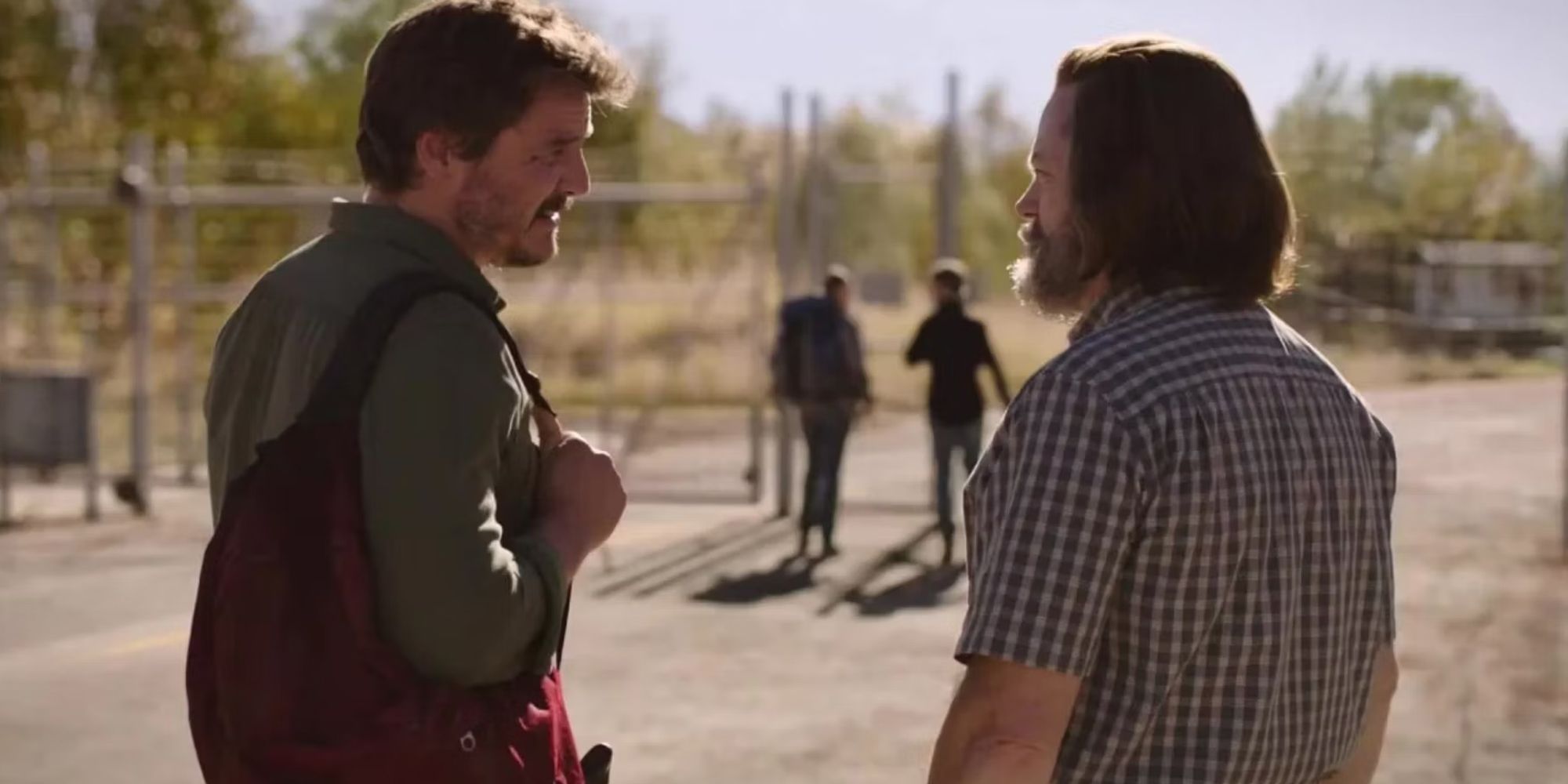When I finished watching this week’s episode of HBO’s The Last of Us and dried my tears, I ritualistically headed for the digital watercooler, AKA Twitter, to saturate myself in The Discourse. Before I even read a single eyebrow-raising tweet, I knew exactly what battle lines would be drawn. One group would be proclaiming it ‘Television’s Greatest Fill-In-The-Blank’ and foisting award recommendations in its direction, while another group would be frothing at the mouth furious about it. Y’know, because gay.
The exhausting thing about combating homophobia today is that people rarely just come out and say they’re homophobic. With the exception of professional morons like Ben Shaprio and Marjorie Taylor Greene, most people don’t start spouting off about the ‘globo homo agenda’ every time they see two moms in a Cheerios commercial. Most of the time, people couch their hatred for queer content in some kind of vapid, nonsensical criticism. Then, other people get sucked into debating an illogical premise without even realizing what’s happening.
Bigots will do backflips to justify their bigotry, and unfortunately, they’re often successful in convincing others to hate something for the reason they just made up. They’ll claim making Harley Quinn bi is disrespectful to the source material, or that the Overwatch writers are condescendingly pandering to the audience with the inclusion of queer characters. They’re not homophobic, you see, they just have a specific and nuanced issue with this particular situation. Sure they do.
In TLOU’s case, the rallying cry of the homophobe is ‘filler episode’. This week’s episode, Long, Long Time, is bad not because it’s gay (some of my best friends are gay, alright?) but because it doesn’t “move the plot forward”. It’s a filler episode - a pointless waste of time that detracts from the actual story being told. Well, here I am taking the bait: Long, Long Time is not, and could never be, a filler episode, because The Last of Us has nothing to ‘fill’.
The Filler episode trope comes from anime. Most anime shows are adaptations of manga, which are ongoing stories written concurrently with the TV show. This has often caused problems for television writers, because Japanese anime typically don’t take seasonal breaks the way American cartoons do. Whenever an anime catches up to the manga it's based on, the anime is forced to slow down by adding filler episodes. Most people immediately think of the time that Goku and Frieza had a battle that lasted 19 episodes in Dragon Ball Z, but every mainstream anime, from Naruto, to Yu-Gi-Oh!, to YuYu Hakusho has filler episodes.
In live action television, filler episodes are exceedingly rare. In the cable era, TV shows typically had a set number of episodes per season - 21 or 23 - which meant shows tended to be compartmentalized rather than serialized. Procedural dramas feature a monster/criminal/illness-of-the-week format, with only occasional nods to a progressing, overarching storyline. Nothing can be filler when everything is.
One very notable episode of TV filler comes from Lost, the breakout, heavily serialized puzzle box series from the early ‘00s. The third season’s Stranger in a Strange Land is regarded as Lost’s worst episode because nothing that happens in it helps get us closer to solving the show’s mysteries. Lost Creators Damon Lindelof and Carlton Cuse have admitted that the episode was created to pad out the season, and the negative reaction to it is the reason that ABC agreed to give Lost an end date.
This week’s episode Long, Long Time is not a product of either scenario. The Last of Us is not trying to stay behind an ongoing storyline in another medium, nor does it need to pad out the season in order to fill an episode quota. The Last of Us, like all modern HBO shows, is as long as its creators have decided it needs to be. The first season is made up of nine episodes of varying length (this ‘filler episode’ is 23 minutes longer than the previous one) that fit together to tell the story Craig Mazin and Neil Druckmann want to tell.
‘Filler’ is not the right term, but I recognize people are using it to criticize the episode because it doesn’t strictly follow Ellie and Joel’s journey the way the game does. This is the most the show has strayed away from Joel’s point of view, but it isn’t the first time. In just the first two episodes we’ve seen a 1968 talk show describing a hypothetical virus, and a cold open depicting how the outbreak first started in Jakarta, and I didn’t hear anyone complain about either of those scenes for breaking from the source material. Neither of those sequences have anything to do with Joel and Ellie’s journey. Are they filler scenes, or are you just mad because gay?
Joel could have found a truck on the side of the road instead of taking Bill’s, or he could have found the empty house without us needing to see their entire relationship unfold. But the shortest route to the destination isn’t inherently the best one in any story. Long, Long Time adds texture to the world, establishes a tone of the series, and provides hope in the face of nihilism - something the game has often lacked and been frequently criticized for. Even if you think the show needs to abide by some strict adherence to Joel, consider what it means for him to have known Bill and Frank and what impact their suicide will have on him. It’s myopic to dismiss this, the third episode of a new show, because the characters from the first two episodes didn’t have as much screen time.
HBO’s The Last of Us is remarkably faithful to the game when compared to other video game adaptations, but it is still its own story, told in a different medium with its own unique conventions. There is no rule that says Joel and Ellie can be the only characters in the show, and thanks goodness they aren’t. Bill and Frank’s story was beautiful, deeply affecting, and entertaining to watch. More than that, it was good TV, and that’s the only thing that should matter.


